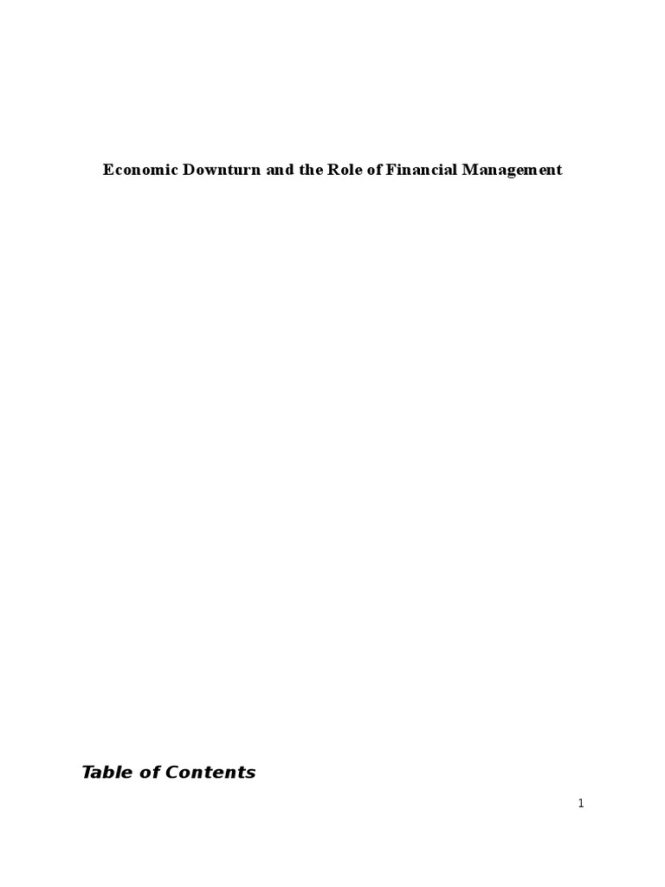

Economic downturns present significant challenges for businesses. Navigating these periods effectively requires a proactive and adaptable financial management strategy. This article explores the impact of economic downturns on business financial management, offering actionable insights for businesses facing headwinds.
Economic downturns, whether mild recessions or severe depressions, invariably impact businesses. Reduced consumer spending, decreased investor confidence, and fluctuating market conditions create uncertainty, forcing businesses to adjust their financial strategies rapidly.
One of the most immediate concerns during an economic downturn is cash flow management. Decreased sales often lead to reduced revenue, making it challenging to meet existing obligations and fund ongoing operations. Businesses need to meticulously analyze their cash inflows and outflows, prioritizing critical expenses and aggressively seeking out short-term financing options if necessary.
Cost reduction becomes paramount during economic downturns. Businesses need to identify areas where expenses can be trimmed without compromising essential operations. This might involve negotiating better deals with suppliers, streamlining processes, or temporarily reducing staff, all while maintaining high standards of service and product quality.
Strategic decisions regarding pricing and product portfolios become critical. Companies may need to adjust their pricing strategies to maintain competitiveness while ensuring profitability. They may also need to analyze product mix to ensure they’re offering the most in-demand items during the economic downturn.
A thorough understanding of accounting principles and practices is essential in managing finances during challenging economic periods. Accurate financial reporting and budgeting become crucial tools for informed decision-making. Businesses need to monitor key performance indicators (KPIs) closely and use accounting data to identify trends and adjust strategies accordingly.
Investing in technology can be key for efficiency and reduced costs. Automation of accounting processes, improved inventory management systems, and streamlined supply chains can all help businesses remain operationally efficient. This can be done by implementing new accounting software, such as cloud accounting systems, to streamline financial reporting and analysis.
Reviewing and potentially restructuring existing debt obligations is another essential step. Companies may need to renegotiate terms with lenders or explore options for debt consolidation to ease the burden on their financial stability. Careful and thorough financial analysis through accounting reports are needed in these scenarios.
Innovation and exploring new opportunities can also contribute to resilience during an economic downturn. Businesses may need to seek out new markets or develop innovative products or services to maintain growth. This may involve seeking outside strategic partnerships or exploring new revenue streams.
Employee retention is paramount. Businesses must prioritize employee morale and communicate transparently throughout the period. Maintaining a positive work environment will help maintain productivity and reduce potential attrition, which can be extremely damaging during an economic downturn period. Companies need to communicate the challenges and the strategy effectively. It can also involve incentivizing employees and reassuring them about the business’s future, even during the most difficult times of economic downturn, making sure employees feel valued and important for the company’s success in the long term. This communication can be a crucial element of an effective business strategy during economic downturns. Good communication is vital for morale and productivity, so ensuring positive and frequent communication is key to success in tough economic times for your company and your workers—something that should be part of your financial management strategies. Transparency will help ensure that employees feel supported and valued, factors that can be especially important during economic uncertainty. This can ensure a motivated and effective workforce throughout the downturn, which directly impacts efficiency and output of work, which are major factors for success during tough economic times—a business’s asset during the downturn. Good communication will make the work environment positive and morale high, keeping employees productive and efficient. This is crucial in successfully weathering the economic downturn, as employee morale and productivity are significant contributors to a company’s success during tough times. If workers feel like their future is uncertain or that their contributions are not valued, they may become less productive or even leave the company. Maintaining good morale and communication is essential for navigating a downturn effectively and keeping the workers engaged and motivated to work effectively. Strong communication strategies are especially important in tough economic times, such as a recession or an economic downturn, to keep workers’ morale high—an important strategy in weathering a downturn effectively and ensuring the team is dedicated and engaged. Transparency is essential to keeping morale high. It will ensure that employees feel supported, appreciated, and respected, crucial for maintaining high productivity during a downturn. Keeping a positive work environment will help reduce employee turnover, which can save the company costs, increase productivity, and save time; all things that become extremely valuable in a downturn. Transparency and communication are vital for maintaining employee motivation and productivity, a factor that is important for overall success during economic uncertainty and downturns. These positive aspects are valuable in keeping a positive atmosphere, maintaining a motivated and dedicated workforce is an important factor during economic uncertainty, and a recession is a particularly important time to maintain good working conditions and transparent communication and efficient strategies for business resilience and adaptability. Transparency will help employees feel valued and appreciated, which are crucial factors in maintaining high productivity during a downturn. It’s important for the company to communicate these efforts to their workforce. Good communication, transparency, and morale support should be essential parts of your financial management strategy during a downturn. Keeping a positive and reassuring work environment is vital for keeping productivity high during uncertain times—a factor that is extremely crucial for a successful strategy during a recession or an economic downturn—a recession is an especially important time to maintain good working conditions and transparent communication and efficient strategies for business resilience and adaptability. Keeping morale high and maintaining transparency will improve efficiency and productivity, a very important aspect in a downturn, which can be a crucial factor in a successful strategy during a downturn or recession.
In conclusion, navigating economic downturns requires proactive financial management strategies. Businesses must adapt quickly, focusing on cash flow management, cost reduction, and exploring opportunities for growth. A strong understanding of accounting principles and diligent financial planning are essential to weathering any economic storm and positioning a business for future success.